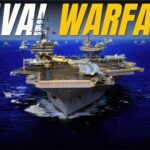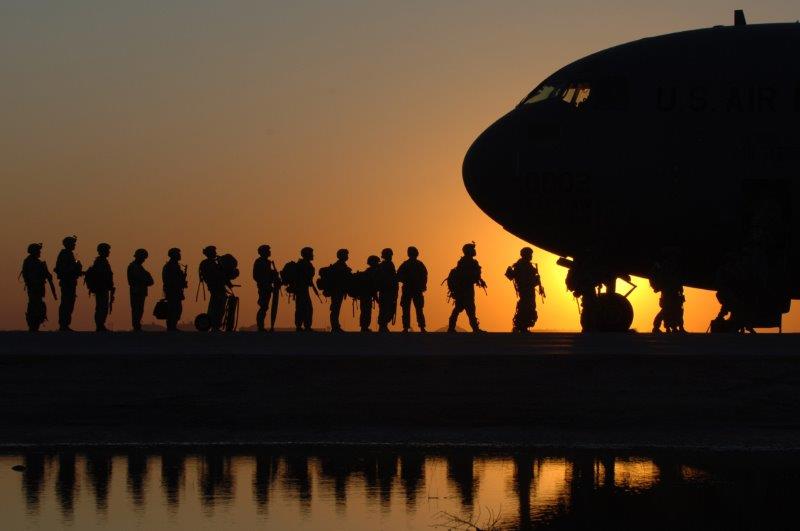Military Police (MP) officers are a vital part of the U.S. military's law enforcement and security operations. One common question that many people have is do military police get deployed. The answer is yes, they do. In fact, military police units are often among the first to deploy in a variety of military operations.
Military police are responsible for maintaining law and order within the military, as well as providing security support for military installations and operations. They play a critical role in supporting military operations overseas and in the United States.
There are several different branches and units within the military police, including the National Guard, Army Reserve, and various military police companies. These units are trained to respond quickly and effectively to various situations, including riots, security breaches, and other emergencies.
In this article, we will explore the roles and responsibilities of military police officers, how military police units are deployed, their involvement in combat, their training and preparation for deployment, and much more. We will also look at real-world examples of military police deployments and the challenges and rewards that come with serving as an MP.
Key Takeaways:
- Military Police officers do get deployed for various operations.
- There are several branches and units within the military police, including the National Guard, Army Reserve, and various military police companies.
- Military police units are responsible for maintaining law and order within the military, as well as providing security support for military installations and operations.
How Long Do Military Police Get Deployed?
The length of deployment for military police can vary depending on several factors. Generally, deployments can range from a few months to a year or more. It is not uncommon for military police to be deployed for an extended period of time, especially during times of conflict or in areas where security is a concern.
In some cases, military police may be deployed at least one tour, but possibly multiple spending several years in a deployment cycle. The duration of deployment is determined by the needs of the military and the mission at hand. Additionally, deployments can be affected by military policies and commitments to international alliances.
While deployments can be challenging and demanding, military police play a crucial role in maintaining law and order, protecting military installations and personnel, and providing security in various operational environments. Their contribution to the mission is vital and their dedication to duty is commendable.
Roles and Responsibilities of Military Police Officers

Military police officers have a critical role in maintaining law and order within the military. They act as both law enforcement officers and military personnel, performing duties similar to civilian police officers while also engaging in combat operations when necessary. Military police officers are responsible for ensuring the safety and security of military bases and personnel.
The responsibilities of military police officers extend beyond traditional law enforcement activities. They are also involved in base defense operations and maintaining law and order on military installations. In addition, they work closely with civilian police agencies to investigate offenses that occur on military bases and coordinate with other military units to ensure the overall security and effectiveness of the military.
Military police officers work as part of a team to accomplish the mission. They are skilled in investigations, apprehension techniques, and defensive tactics. Additionally, they are trained to work in a variety of environments and situations, including urban and rural areas.
The Base Defense Operations Cell (BDOC) is a critical part of the military police mission. The BDOC provides a centralized location for base defense planning and operations. It acts as a control center for all security procedures and is responsible for monitoring and assessing potential threats to the base.
Overall, military police officers have a unique role in the military. They operate both as peacekeepers and soldiers, providing support to the overall mission of the military while also engaging in law enforcement activities to ensure the safety and security of all service members.
Deployment of Military Police Units

Military police units are a critical component of the armed forces, and their deployment is necessary to ensure the safety and security of military installations and personnel. The National Guard and Army Reserve are two important branches of the military that are responsible for the mobilization of military police units.
The 268th Military Police Company, part of the Army National Guard, is one of many military police units available for deployment. Their primary role is to provide law enforcement and security services to military installations, but they can also be mobilized to support combat operations.
The 251st Military Police Company is another unit that can be deployed. This company is part of the United States Army Reserve Support Command and is responsible for the training and mobilization of Army Reserve soldiers.
Did You Know: During World War II, the 93rd Military Police Battalion was one of the first U.S. Army units to land at Normandy on D-Day. Their mission was to direct military traffic inland after the invasion. This diverse unit contained African American, Japanese American, and Caucasian soldiers who had trained together as a single battalion. Despite concerns over potential racial conflicts, the battalion performed successfully during the chaos of the landing under intense enemy fire.
The Army National Guard and United States Army Reserve Support Command are both responsible for the deployment of military police units. The National Guard soldiers are typically mobilized for state emergency duty, while Army Reserve soldiers are deployed for federal service.
Deployments can vary from short-term to long-term and can involve a variety of military operations. National Guard and Army Reserve soldiers may be deployed to support a variety of missions, including base security, convoy operations, and detainee operations.
The deployment of military police units is essential to the overall readiness of the military. National Guard and Army Reserve soldiers are trained to provide quick response and support to military operations, making them an invaluable asset to any mission.
The Role of Military Police in Combat

Military police officers are primarily responsible for enforcing laws and maintaining order on military bases. However, they may also be deployed to combat zones in support of military operations. While military police officers are not typically involved in direct combat, they may find themselves in dangerous situations where their combat training and experience are essential.
The military police have a variety of military occupational specialties related to combat, including Army Combat, Military Police Investigations, and Law and Order. These specialties allow military police officers to be a valuable asset in combat settings.
Overall, military police officers may not always see combat in their day-to-day duties, but they are trained and ready to respond to combat situations when necessary.
Training and Preparation for Deployment

"Military police training is designed to prepare MPs for the unique challenges of serving in a military environment. This includes training in law enforcement, combat tactics, and emergency response. Our officers are always ready and prepared to serve in any situation."
Military police officers undergo extensive training to prepare for deployment. The training covers a wide range of skills, including law enforcement and tactics specific to military operations. The Army Military Police School provides both basic and advanced training for military police officers, which includes classroom instruction and hands-on training exercises.
The training prepares Army Military Police to serve as part of a quick reaction force (QRF), which is a rapid response unit that can be deployed at short notice to provide security or support in emergency situations. The QRF is responsible for responding to threats to military installations or personnel, including terrorist attacks and natural disasters.
Army MPs also undergo training in physical fitness, weapons handling, and self-defense. They are trained to operate a variety of weapons, including handguns, rifles, and shotguns. They also receive training in combat first aid and other medical skills that are essential for serving in a combat environment.
The Army Reserve and National Guard also provide training programs for military police officers. The Capable and Ready Army Reserve (CAR) program is designed to improve the readiness and capabilities of Army Reserve soldiers, including military police officers. This program emphasizes physical fitness, marksmanship, and leadership skills.
Overall, military police officers are highly trained and prepared to serve in a variety of roles and environments. Their training and preparation ensure that they are ready to deploy at a moment's notice, whether as part of a QRF or a larger military operation.
Real-World Examples of Military Police Deployments
Military police units are called upon to serve in a variety of military and civilian law enforcement capacities. One example of this is their deployment to Guantanamo Bay, where military police officers are responsible for maintaining order and security at the detention facilities.

Military police officers are also mobilized to support combat operations. They may be assigned to units such as the First Army’s 5th Armored Brigade, providing critical support and security to ground forces. The Army Reserve and Army National Guard play a significant role in these deployments, providing personnel and resources to ensure mission success.
Another example of military police deployments involves collaboration with civilian law enforcement. Military police units may work with local police departments to provide additional security and support for major events or public safety initiatives.
The 85th United States Army Reserve is another military police unit that has been involved in a variety of deployments. This unit includes personnel from the Army Reserve and Army National Guard, and has been deployed to locations around the world to support military operations and provide law enforcement services.
Overall, military police officers and units play a crucial role in maintaining law and order both on military bases and in support of military operations. Their deployment to a variety of locations and roles demonstrates the flexibility and readiness of these elite units.
Stay Ready for Deployment
Military police officers must be continuously ready for deployment. Their training and preparation make them a critical asset to the military and their involvement in various deployments, such as those to Guantanamo Bay, highlight the significance of their duties. Ultimately, military police officers are essential to the success of military operations and remain ready to serve whenever they are called upon.
The Challenges and Rewards of Military Police Deployments
Deployments for military police officers can pose unique challenges due to the environment in which they work. Military bases are often high-stress, high-pressure environments where maintaining order is crucial. As a result, military police officers must be highly trained and ready to handle any situation that may arise.

As a military police officer, one may serve as a company commander, a supervisory role that requires excellent leadership skills to ensure that all personnel are well-trained and capable of performing their duties effectively. They may also serve as an officer in charge, responsible for ensuring that all law enforcement and security operations are running smoothly.
Another challenge that military police officers may face during deployments is the need to work with a variety of military and civilian personnel. This requires excellent communication skills and the ability to work collaboratively with others to achieve common goals.
Fortunately, military police officers receive extensive training to prepare them for these challenges. The Army Reserve Support Command based in Georgia, for example, provides training and support for Army National Guard soldiers and Reserve soldiers serving as Military Police. The training includes drills for quick reaction forces, preparing officers for deployment at a moment's notice.
Despite the challenges, there are also many rewards to being a military police officer during deployments. These may include the opportunity to travel and serve in different parts of the world, the sense of pride that comes from serving their country, and the knowledge that they are helping to maintain order and protect their fellow service members.
Conclusion
In conclusion, military police officers do get deployed. They play an important role in maintaining law and order within the military and are trained to be ready for deployment at any time. Military police officers are responsible for law enforcement on military bases, base defense operations, and maintaining order in challenging environments.
Deployments can involve a variety of assignments, including collaboration with civilian law enforcement and combat situations. However, military police officers receive specialized training and are capable of handling these challenging situations.
Deployments involve unique challenges, including the environment of military bases and the responsibilities of a military police officer. However, military police officers also experience the rewards of working as part of a capable and ready army reserve and national guard military police unit.
FAQ
Do Military Police Get Deployed?
Yes, military police can and often do get deployed to various locations and missions.
What is the role of military police in a deployment?
The role of military police during a deployment is to maintain law and order, enforce military regulations, provide security, and support the mission objectives of their unit.
Can military police officers be part of the National Guard?
Yes, military police officers can serve in the National Guard. The National Guard has its own military police units that are responsible for both the civilian and military law enforcement duties within their respective states.
What is a military police company?
A company in the military police is a unit within the military police that typically consists of multiple platoons of military police personnel. These companies are responsible for a variety of law enforcement and security tasks.
Where can military police officers be deployed?
Military police officers can be deployed to a wide range of locations depending on the needs of the military. They can be deployed to combat zones, military bases, embassies, or other areas where their presence is required.
Is it common for military police units to get deployed?
Yes, it is common for military police units to get deployed. Military police units are often in high demand due to their specialized training and skills in law enforcement and security.
What is the difference between military police and civilian police?
The main difference between military police and civilian police is their jurisdiction. Military police have jurisdiction over military personnel and installations, while civilian police have jurisdiction over the civilian population within their respective areas of responsibility.
Do military police work alongside civilian law enforcement officers during deployments?
Yes, military police often work alongside civilian law enforcement officers during deployments, especially in areas where the military and civilian populations coexist. They collaborate and coordinate their efforts to maintain law and order and ensure the safety of both military personnel and civilians.
Do military police units serve as quick reaction forces during deployments?
Yes, military police units can serve as quick reaction forces during deployments. They are trained to respond rapidly to various security threats and emergencies, providing immediate support and assistance as needed.
What is the rank of a military police company commander?
The rank of a military police company commander can vary, but it is typically a Captain (abbreviated as "Capt") or a higher-ranking officer. The specific rank may depend on the size and mission of the unit.











